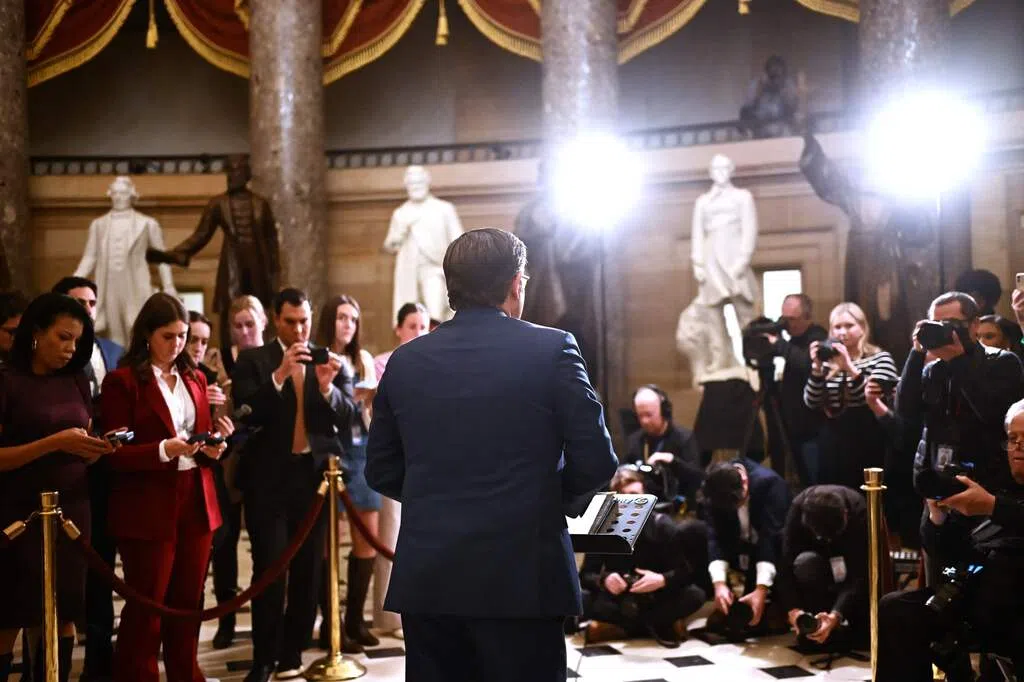(Washington, D.C.) The International Monetary Fund (IMF) says the world's 20 largest economies are projected to grow by only 2.9% in 2030, the weakest medium-term outlook since the 2009 global financial crisis, due to headwinds from protectionism and policy uncertainty.
In a report submitted to the G20 on Wednesday (November 19), the IMF outlined a range of challenges facing the global economy, including widening current account imbalances, strained public finances, and an aging population in advanced economies.
The report states that the advanced G20 economies—the United States, the United Kingdom, Australia, Canada, France, Germany, Italy, Japan, and South Korea—are projected to grow by only 1.4% in 2030; while emerging G20 economies—Argentina, Brazil, China, India, Indonesia, Mexico, Russia, Saudi Arabia, South Africa, and Turkey—are expected to achieve stronger growth of 3.9%.
The report indicates that G20 economic output is projected to grow by 3.2% in 2025, down from 3.3% last year, and will slow to 3.0% in 2026. G20 leaders will meet in South Africa this weekend (September 22-23), but US President Donald Trump, Chinese President Xi Jinping, and the leaders of Argentina and Mexico will not attend.
Further Reading


Global trade tensions have escalated over the past year, with real tariffs rising under US leadership. Trump is seeking to bring manufacturing back home and end what he calls decades of unfair trade treatment for American businesses.
The IMF report notes that global inflation is expected to continue declining in the near term due to weak demand and falling energy prices, but the tariff increases pose a risk to economies like the US that are already imposing higher tariffs.
The report states that high-frequency indicators already show that the US producer price index and core inflation are rising. US core inflation is not expected to return to the Federal Reserve's 2% target level until 2027, two years later than predicted in the IMF's report to the G20 last year.
The IMF urges countries to cooperate in reducing trade barriers, mitigating uncertainty affecting economic growth prospects, and encourages G20 members to develop a "clear and transparent trade policy roadmap."
South Africa rejected the US request that the G20 summit not issue a declaration. The G20 summit was held in Johannesburg, South Africa. South Africa confirmed on Wednesday that the U.S. Embassy in South Africa issued a diplomatic note over the weekend reiterating Washington's non-attendance at the G20 summit and requesting that no declaration be issued.
The G20 summit traditionally issues a leaders' declaration outlining consensus reached on a range of key global economic issues.
The U.S. pointed out that South Africa's priorities at the G20 run counter to U.S. policy, making it impossible for the U.S. to support any consensus reached in the G20 negotiations on any document. However, South Africa has rejected the U.S. demand.
South African Foreign Ministry spokesman Ferry told AFP that South Africa would not succumb to coercion. "Washington's absence renders it unable to influence the conclusions of the G20. We must not allow pressure through absence to become a viable tactic. This will only lead to institutional paralysis and the collapse of collective action."
Relations between South Africa and the U.S. have deteriorated over the past year due to a series of foreign and domestic policy issues, culminating in the U.S. expelling the South African ambassador in March.



